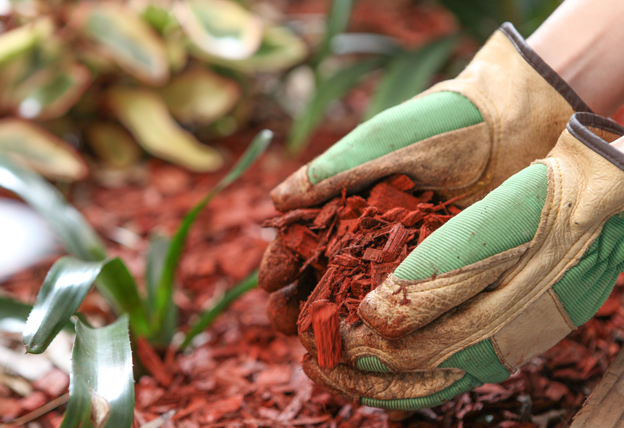
Published in:
Using Mulch for Property Preservation
Highlights
- An exploration of why mulch is an emerging component for property preservation
- A list of the benefits of mulch for property preservation
Mulch is a layer of material applied to the surface of the soil. Reasons for using mulch include the conservation of soil moisture, the improvement of fertility and the overall health of the earth. These are amongst the many reasons that mulch is a significant component to consider.
Due to its guaranteed yields, you can regard mulch as a sound investment. In addition to improving your property’s appearance, it reduces weeds, stabilizes the soil, conserves water, and improves plant health.
RETAINS MOISTURE
Mulch is a powerful tool for water conservation, due to this property, it’s used to cover wells too. A thin layer of mulch blocks the sun rays from penetrating without impeding irrigation; in turn, this helps the soil stay fresh. Moisture evaporation from soil covered with mulch is typically reduced by 10% to 50%.
REDUCES RISK OF WEEDS
Studies have shown, that the correct application of mulch, combined with an herbicide application, can practically reduce the chances of weeding and cultivating. While the quality and implementation of the mulch used factoring in how successful it will be, it can be of great aid when considering the cost aspect of grass and weed maintenance.
Fast, On-time, and Accurate Offshore Property Preservation Support that helps you Reduce Costs and Process More Orders
THE INSULATION PROPERTIES OF MULCH
While not widely known, the utilization of mulch in the insulating aspect of property construction has many advantages. Mulch is immune to drastic temperature changes, meaning it will keep the soil surrounding the property cool on warm days and vice versa on cold nights. It provides excellent help when temperatures drop to freezing levels, preventing the land from freezing and then thawing out, which can cause roots and plants to burst from the ground.
BENEFITS OF MULCH
- Mulch injects organic matter into your soil, improving your garden and makes it increasingly more resistant to insects and disease, consequently saving you money on pest control.
- Mulch provides nutrients and vitamins to plants, saving you money on costly fertilizers.
- Shade protects from too much sun exposure and produces more fertility in the soil.
- Protects plants from frost damage by acting as a protective ‘blanket’.
- Improves soil drainage and structure as it begins to decompose.
- Mulch provides support around plants, especially young seedlings. Producing a solid foundation for ongoing plant growth.
- Utilizing mulch recycles materials usually classed as waste, e.g. organic mulches like grass clippings and leaves.
- Mulch protects plants from mud-splash during watering or heavy rain.
- Prevents erosion and soil compaction, particularly from foot traffic on pathways and play areas.
- Implementation of mulch can improve the overall aesthetics of your garden.

